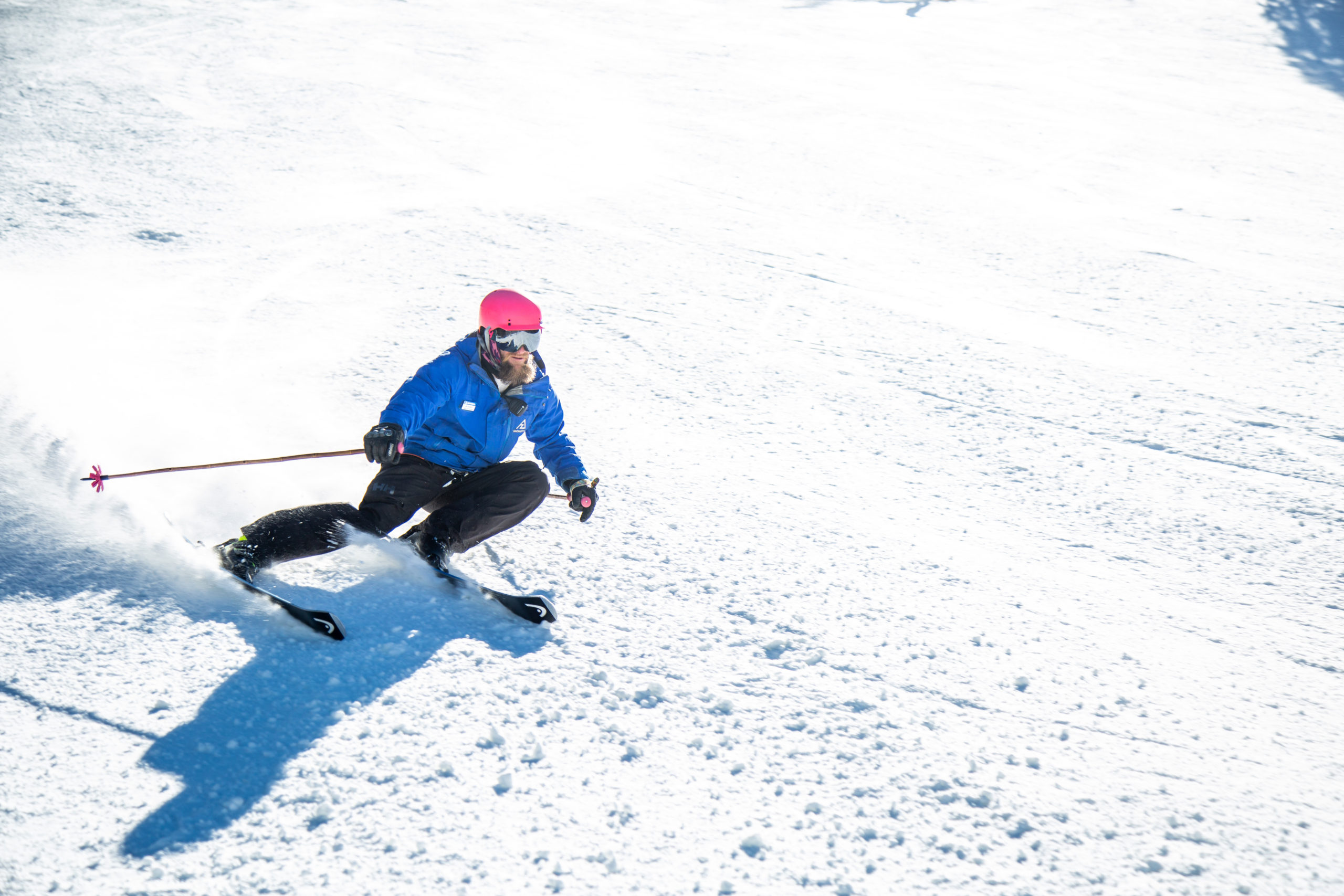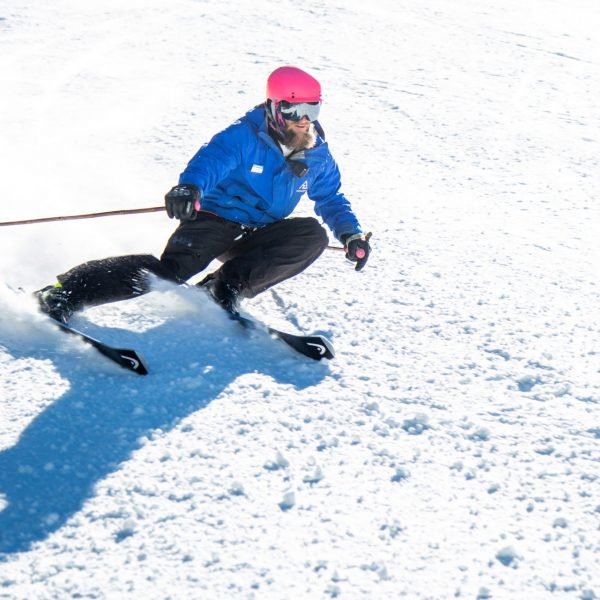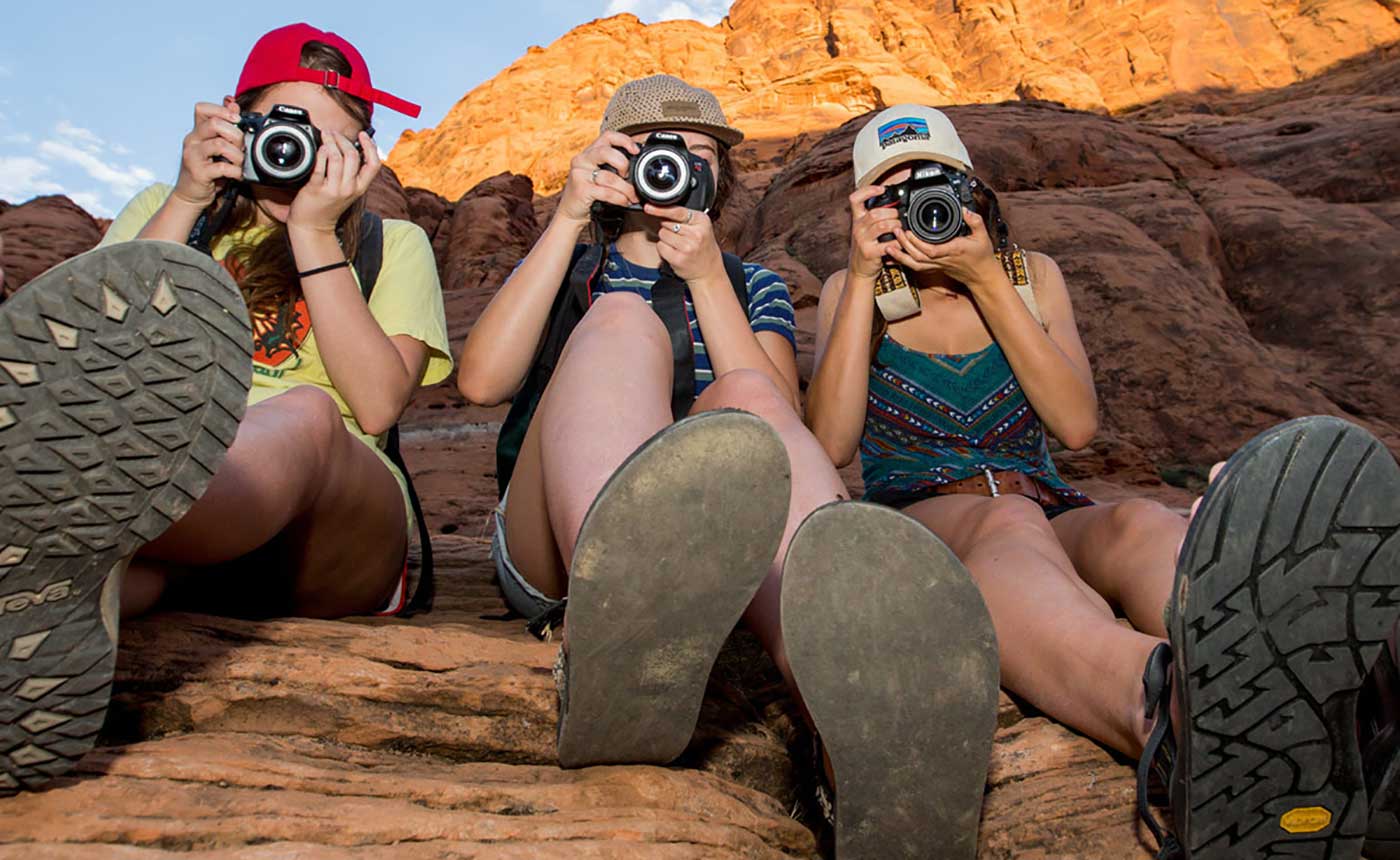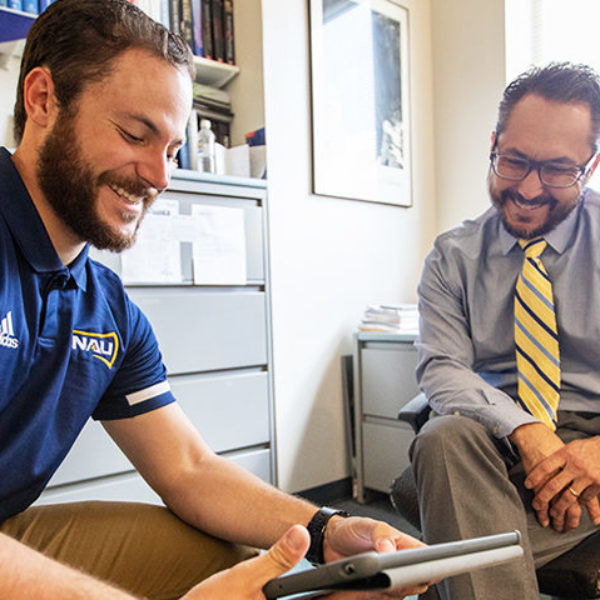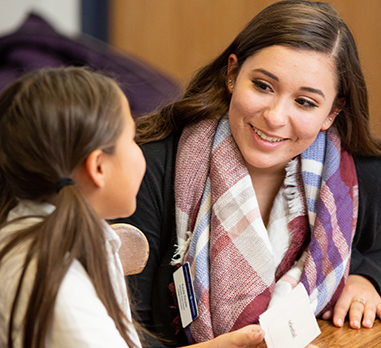When Alexander Davenport realized he wanted to build an adaptive sports program, he looked to NAU to help him reach his goals.
Adaptive sports are an avenue for people with disabilities to access sports and recreational activities.
Davenport is the founder and executive director of the Northern Arizona Adaptive Sports Association, and now runs the program at Arizona Snowbowl ski resort. Davenport came into this career by chance.
After completing his service in the United States Marine Corps in 2011, Davenport moved to Flagstaff and started attending NAU for an education degree. A friend recommended he get a job at Snowbowl.
“I worked up there as a ski instructor,” he says. “I was a terrible skier, probably the worst skier on staff. But I always had the coldest teeth, I was always smiling so much. I was having so much fun and I loved teaching.”
Then fate stepped in.
“One Saturday there was a special needs lesson and the supervisor said, ‘Does anybody want to try it?’ And I was like, ‘Sure, I’ll try anything twice.’”
I went and found something I loved, and then I went to school for it.
Davenport hit the slopes with an autistic 14-year-old boy. His adaptive gear consisted of a bamboo pole with padding on either end that they could both hold on to.
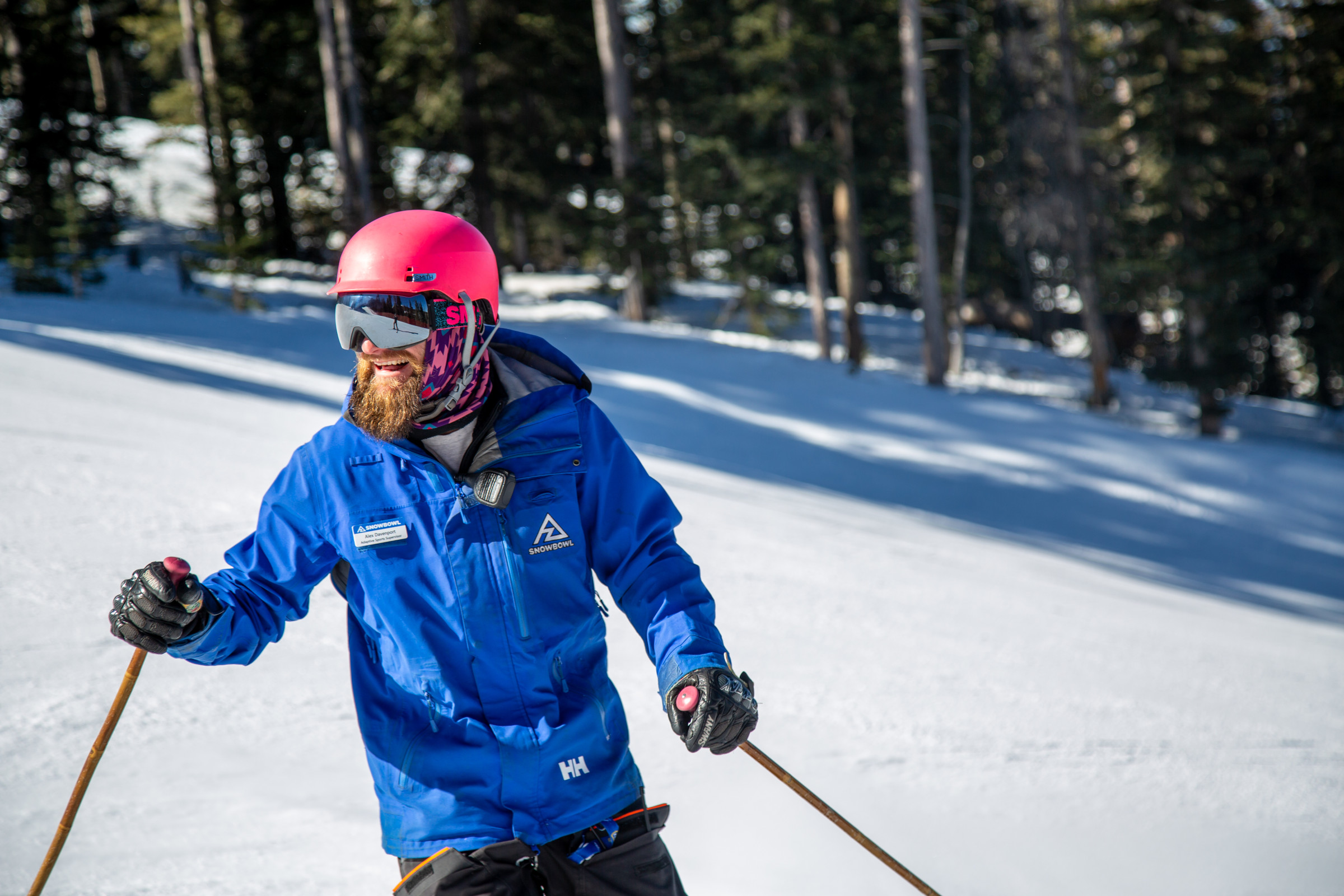
“At the end of three hours I just kind of let him go and he skidded to a stop with a big smile,” Davenport says. “It was cool. I didn’t know the dad was watching from the balcony. His dad said, ‘Alex, you don’t know what you’ve done for our family. Doctors said he’d never ride a bike. Doctors said he’d never play soccer; he’d never do what other kids do. But I just saw my son ski. And it was just three seconds but it means the world to us.’”
That moment changed Davenport’s life. He started training in adaptive sports education and took the lead in establishing a program at Snowbowl. That year he taught 11 adaptive lessons. The next year, 64. Then 377. Then 450.
From a bamboo pole to a world-class program
To focus on building the program, he dropped out of school. “I still wanted to be a teacher,” he says, “but in a different kind of classroom.”
He continued to build up the ski program and, in 2015, founded the nonprofit Northern Arizona Adaptive Sports Association with the goal of adding other sports—mountain biking, rafting, horseback riding, etc.—to the mix.
Eventually, returning to school became a priority. Davenport switched his major to University Studies, adding on minors in both Spanish and Disability Studies.
“It’s an awesome degree plan,” he says. “I’m so happy I found it. It was something I was already working with and it gave our organization more credibility.”
The degree program helped him continue to build the adaptive sports programs.
“I went and found something I loved, and then I went to school for it,” he says. “I had really great professors and I had awesome people who believed in what I was doing here. I used a lot of the work that I’ve done here at Snowbowl to be successful in school, and vice versa.”
He found exceptional support from multiple mentors here at NAU, such as Assistant Clinical Professor Katherine Mahosky and staff member Matthew Wangeman from the Institute for Human Development, and Lecturer Judy Montoya, with Geography, Planning, and Recreation.
Davenport graduated in May of 2019. By February 2020, he and his team were on track to deliver 450 lessons for the ski season. Thanks to an aggressive grant writing effort, the program has moved from just a cubicle in the ski school to its own building, with eight instructors and a shed full of adaptive sports gear.
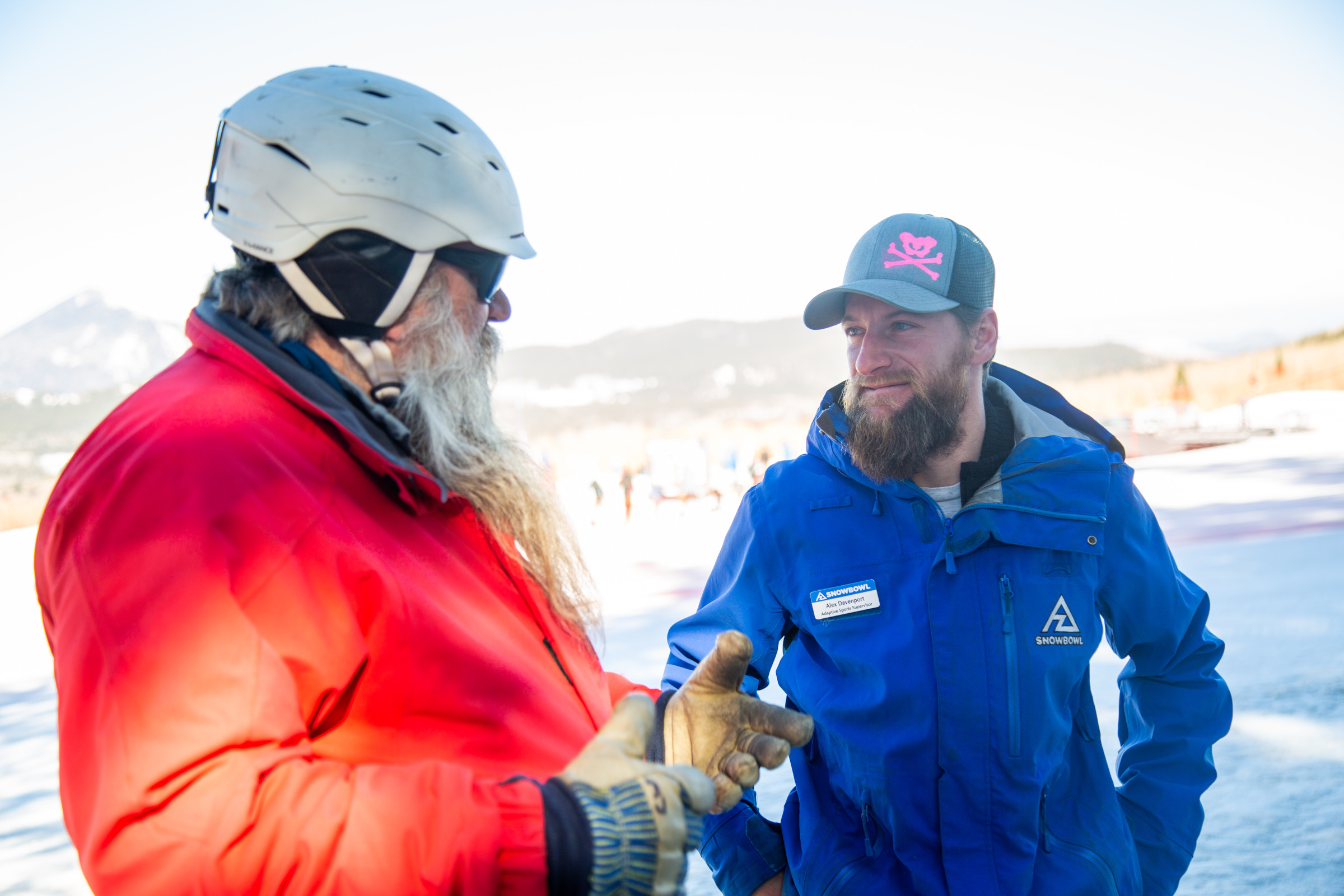
The bamboo pole is still there, but it’s now surrounded by expensive monoskis, sitskis, and everything else the team needs to make the mountain accessible to everyone. The program has received significant support from Snowbowl, Northern Arizona Healthcare Foundation, Fiesta Bowl Charities, and the Veterans Administration, among others. In addition to equipment, they can provide scholarships to get participants to the mountain and cover the cost of lessons. Other funds go toward helping his staff earn national adaptive sports teaching certification. Davenport and his team have built a world-class adaptive ski program.
In addition to all these accomplishments, Davenport’s association with NAU has only strengthened since his graduation. He is working with the Institute for Human Development to track program data, a relationship that enables him to keep expanding sports accessibility.
“We now have the instructors, the equipment, and the know-how to do any lesson for any disability, for anybody, and do that in a quality way,” he says. “And it wouldn’t be possible if it wasn’t for NAU and me going back to school.”

